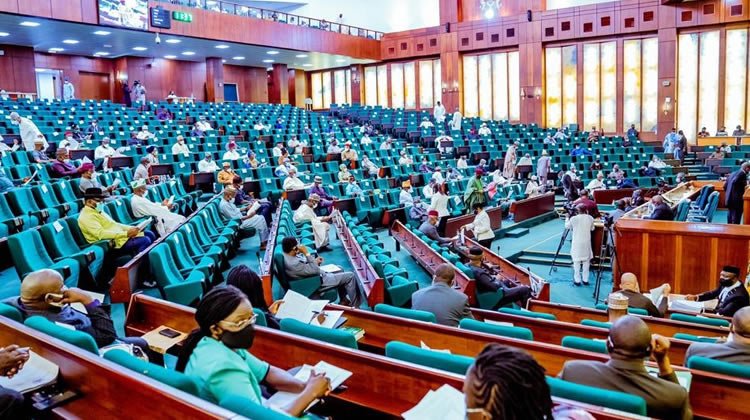
The House of Representatives has mandated its Committees on Finance, and Petroleum (Upstream and Downstream) to investigate allegations by the Revenue Mobilisation Allocation and Fiscal Responsibility Commission that the Nigerian National Petroleum Company Limited (NNPCL) withheld N8.48tn as claimed subsidies for petrol.
Additionally, the House directed the committees to examine the Nigeria Extractive Industries Transparency Initiative (NEITI) report, which states that the NNPCL failed to remit $2bn (N3.6tn) in taxes to the Federal Government. The committees will also verify the cumulative unremitted revenue, or under-recovery, from the sale of petrol by the NNPCL between 2020 and 2023.
This directive came as the House approved the 2025-2027 Medium-Term Expenditure Framework (MTEF) and Fiscal Strategy Paper (FSP) in preparation for President Bola Tinubu’s presentation of the 2025 Appropriation Bill to the National Assembly next week.
The MTEF is a strategic plan for public expenditure, setting targets for budget policies, while the FSP outlines Nigeria’s fiscal policy and medium-term macroeconomic framework, serving as critical components of the annual budget process. President Tinubu transmitted the MTEF/FSP to the National Assembly on November 19, 2024, following its approval by the Federal Executive Council.
The Tinubu administration pegged the 2025 oil benchmark at $75 per barrel, with production projected at 2.06 million barrels per day. The exchange rate parameter was set at ₦1,400 per dollar, while the GDP growth rate was projected at 6.4% per annum.
During the consideration of the report by the Committees on Finance and National Planning and Economic Development, Deputy Speaker Benjamin Kalu, presiding over the session, encountered debate over the recommendations, particularly the oil benchmark for 2025.
Minority Leader Kingsley Chinda opposed the $75 benchmark, arguing for the retention of the 2024 figure of $77.96. According to Chinda, the country had exceeded the $77.96 target in the first quarter of 2024, with crude oil prices averaging $85 per barrel.
He said, “For 2024, we recommended $77.96, which is the current budget. Today, the price is about $85 per barrel. Recommending $75 for next year, one month away, seems counterproductive. We should retain the current minimum, considering global reliance on fossil fuels is declining but not yet obsolete.”
Chairman of the House Committee on Finance, Abiodun Faleke, countered the argument, describing the $75 benchmark as “responsible.” He noted that oil prices are volatile and beyond the control of any nation. “In 2024, crises in some oil-producing nations drove up prices, but in 2025, stability may lower prices. As of now, prices have dropped to $74, making our projection realistic,” Faleke explained.
This position was supported by other lawmakers, including Ibrahim Isiaka, who emphasized that the MTEF is a flexible document that can be reviewed if circumstances change.
Another contentious issue was the projection of domestic crude oil production, which increased from 1.78mbpd in 2024 to 2.06mbpd for 2025, and further to 2.10mbpd and 2.35mbpd for 2026 and 2027, respectively.
Chinda questioned the feasibility of these targets, noting that as of the previous day, production stood at 1.05mbpd. “Our target has always been 2mbpd, but we’ve struggled to meet it. Setting ambitious targets could lead to shortfalls, reducing government revenue and increasing borrowing,” he said.
Faleke justified the projections, stating that production is nearing 2mbpd, and ambitious targets encourage operators to strive harder. “During President Goodluck Jonathan’s administration, production was around 2.5mbpd. These projections include all condensates, not just crude oil,” Faleke added.















